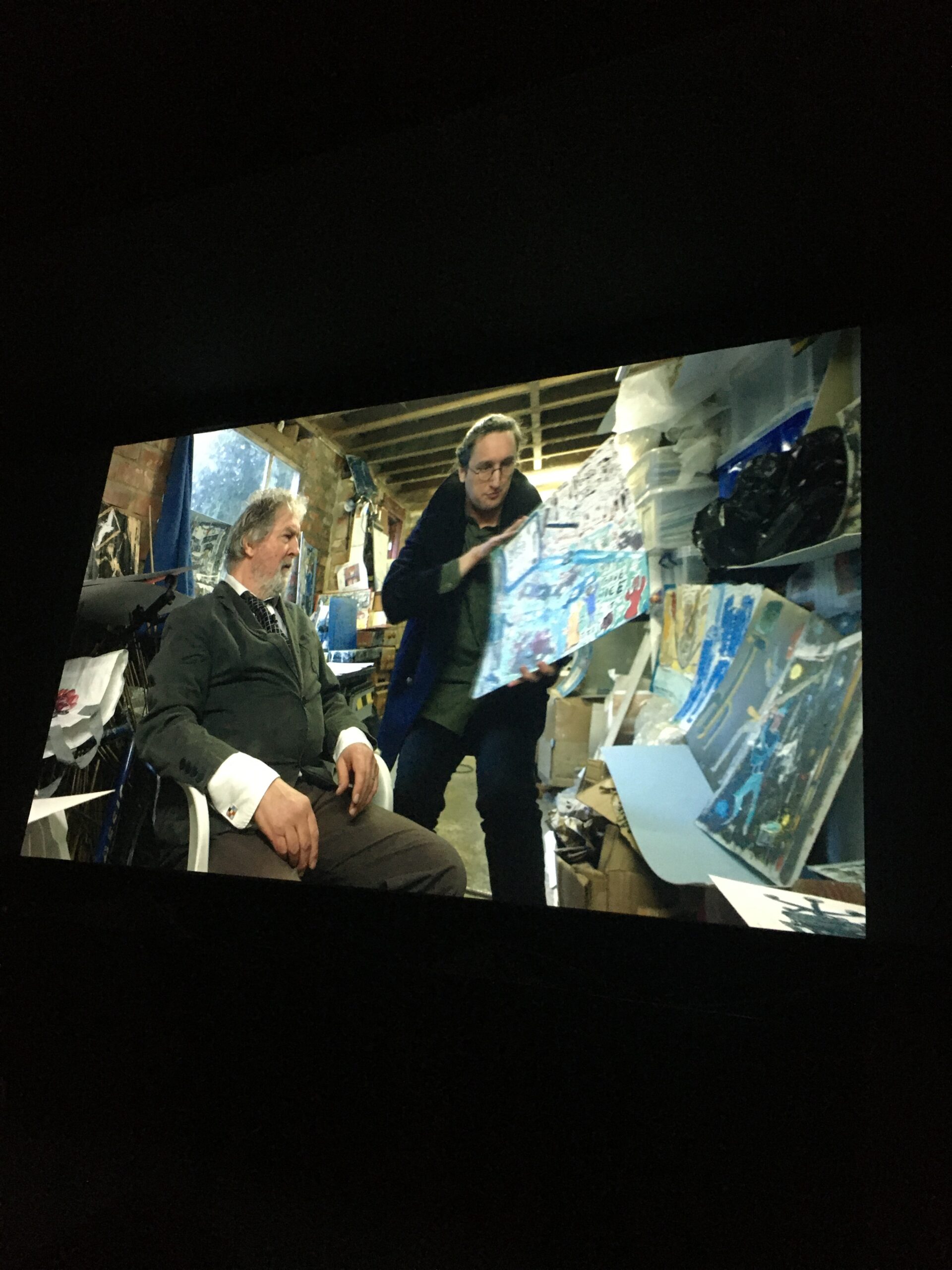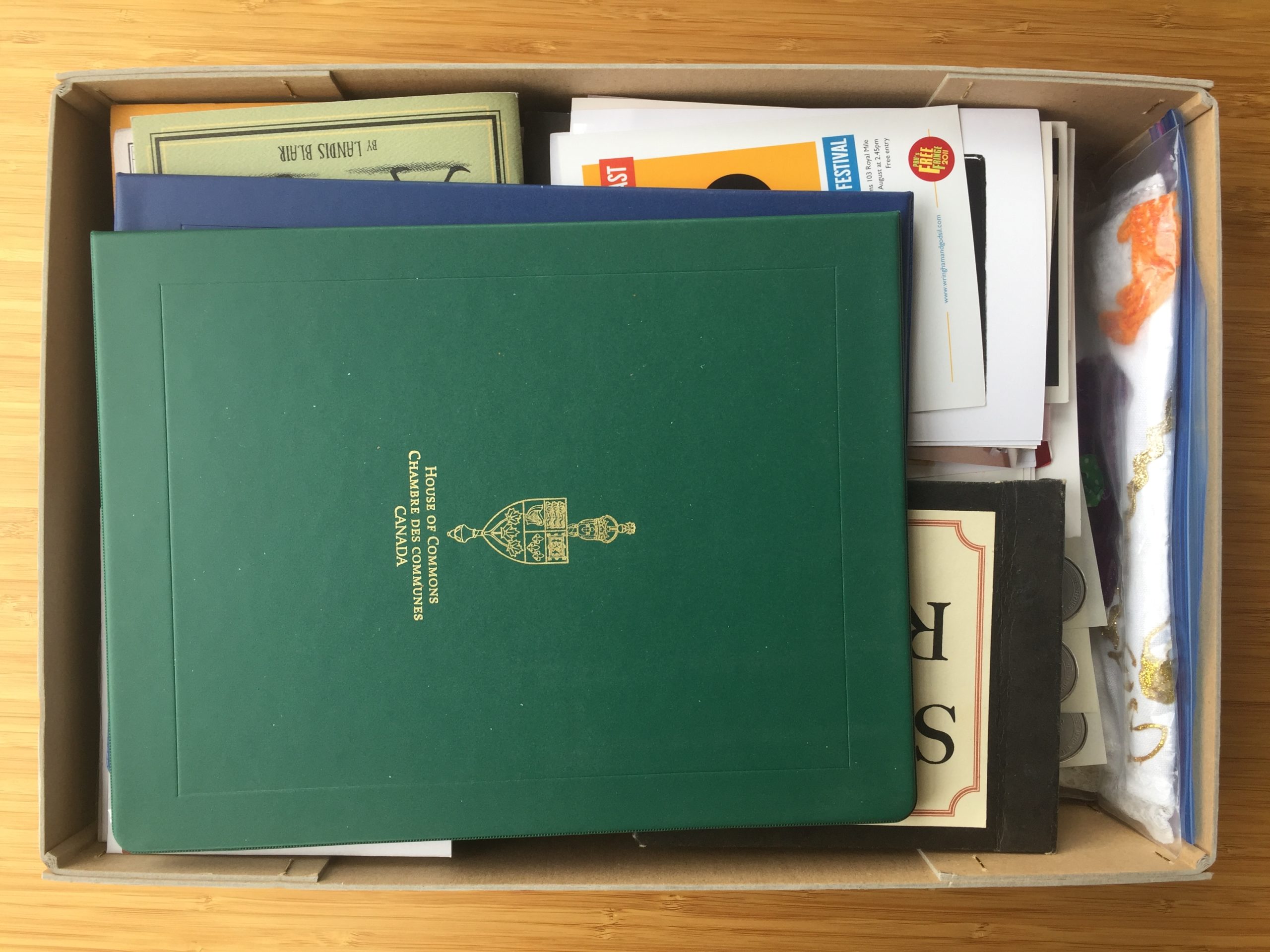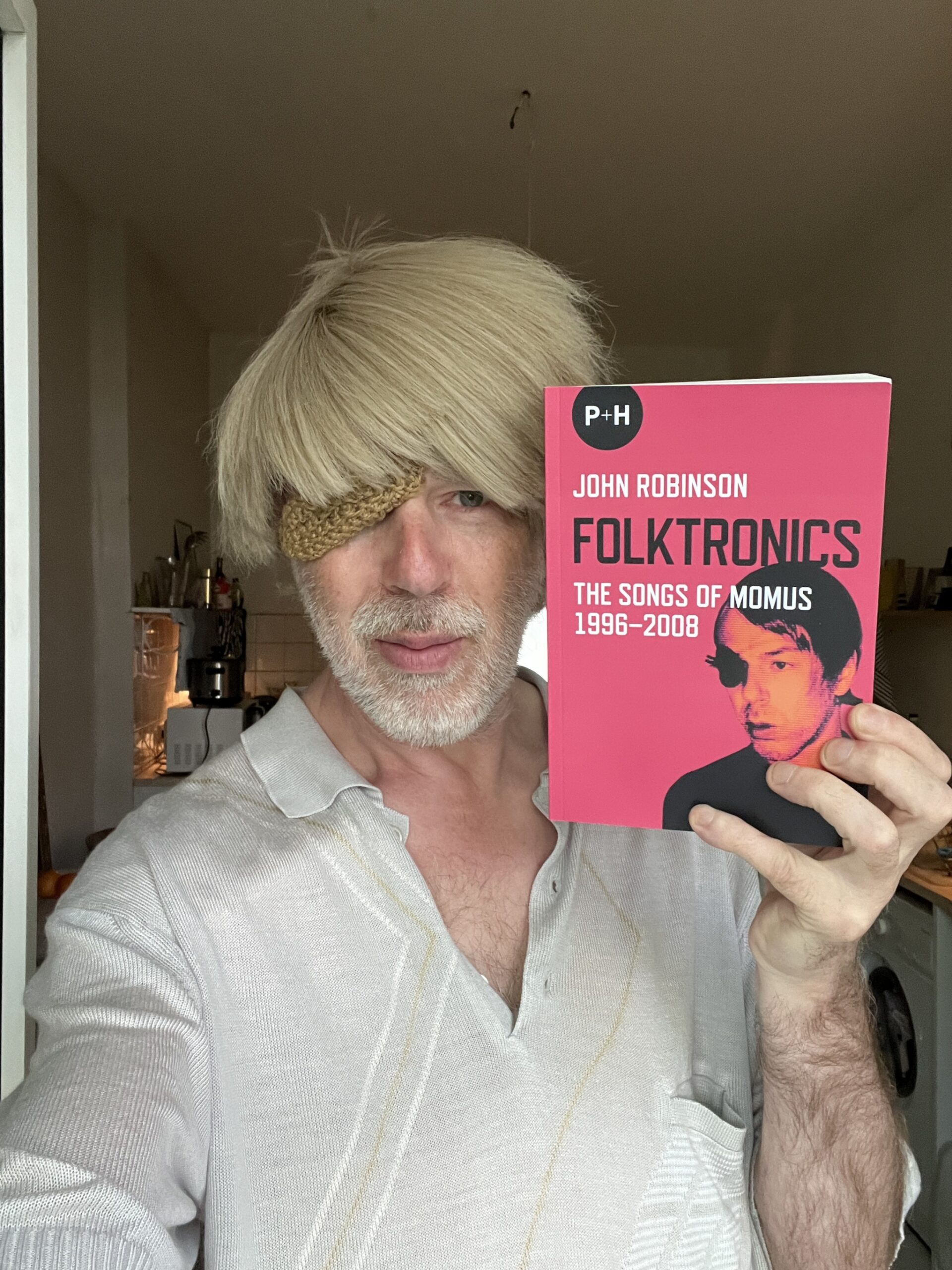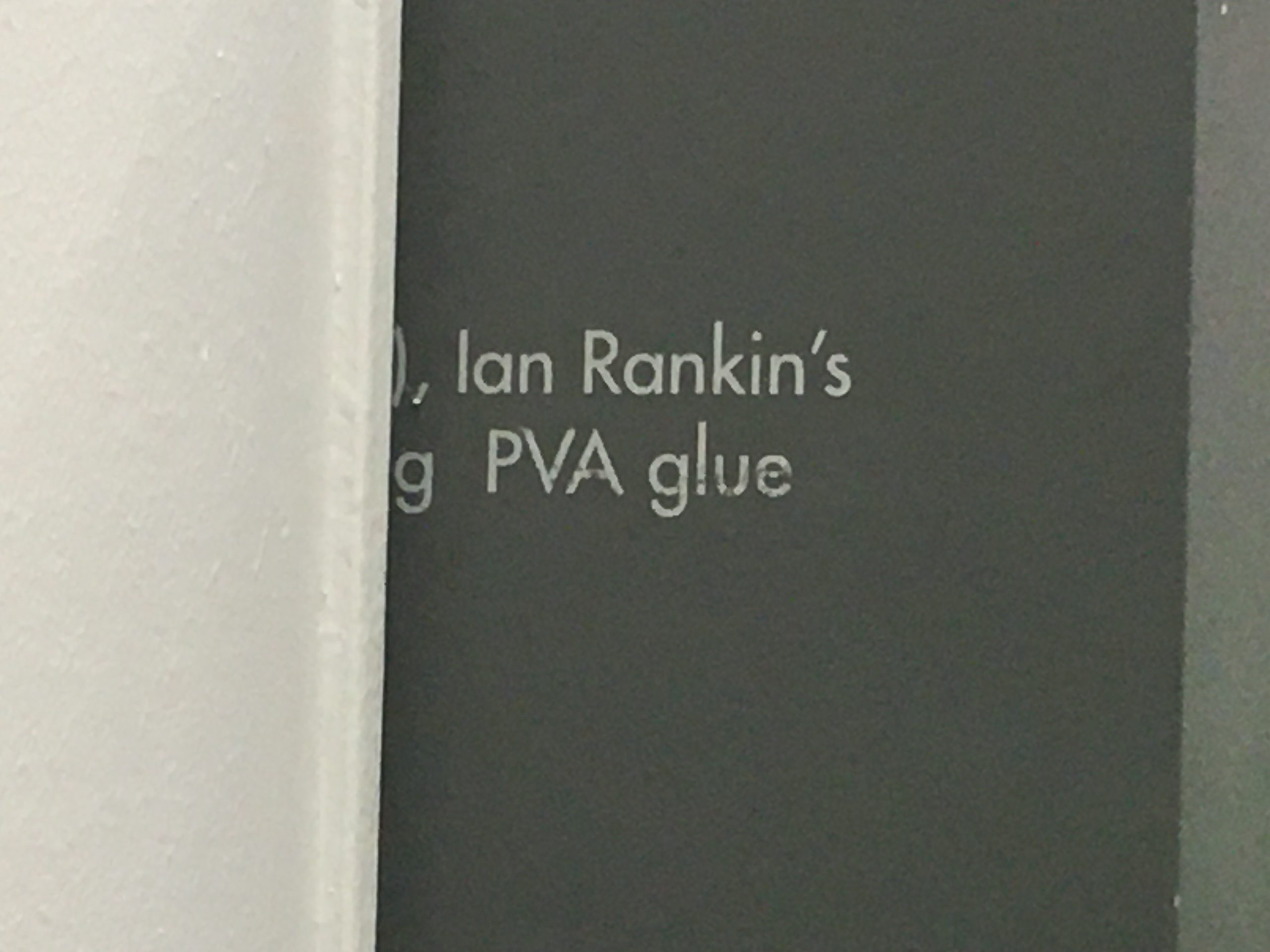Birmingham went even better than Edinburgh. The Iceman looks phenomenal on the big screen.

Some Black Country reprobates:

A Blog. Lost in transitional space since 2004.
Birmingham went even better than Edinburgh. The Iceman looks phenomenal on the big screen.

Some Black Country reprobates:

With Mark Cartwright and Simon Munnery at the Edinburgh WIP screening of Melt It!

And here’s me and Mark’s debrief a few days later:
Dembina: So I was walking down the road, as the comedians say…
Me: Which road?
Dembina: The Holloway Road. It joins up with the A1.
Me: Glad I asked.
Dembina: Good heckle.
*
Dembina: What’s it called? Jewish Playboy?
Me: Playmensch.
Dembina: Nah, not…
Me: Playgoy?
Dembina: That’s it. You can have 50p for that one, not a pound.
*
The spirit of the Tunnel Club is alive in Edinburgh.
Coming up: Edinburgh (14th Aug) and Birmingham (24th Aug) WIP screenings of the Melt It! film.
These will include an unseen ~40-minute early cut of our film, which stars Jo Brand, Stewart Lee, Ronni Ancona, Robin Ince, Simon Munnery, Neil Mullarkey, and of course the Iceman and me.
Director Mark Cartwright and I will then follow the screening with a 20-30 minute (depending which version you come to) in-person talk and Q&A.
I daresay there will also be ample opportunity for a chat in the bar afterwards.
Part of the mission is to raise money to help us finish the film. The Edinburgh screening is part of the PBH Free Fringe so there’s no cost to entry. If you can afford it though, please put some money in the bucket at the end. Birmingham tickets, meanwhile, are a tenner.
Come! See what on Earth we’ve been up to, help us tie a bow on this fucker, and hear about our remarkable journey so far.
Here’s a special trailer just for these WIPs:
Spümcø‘s video for “Fuck Her Gently” by Tenacious D isn’t on YouTube, presumably because of rudeness or Satanism or both.
Or maybe the hard fuckers at YouTube don’t agree with the song’s message.
Honestly, back in 2002 this played all day long on Kerrang! and MTV. Listen to Grandpa. Platform capitalism is stupid.
So here it is. Justice for KG.

Some fan mail arrives for Mister Bob.
“I just wanted to pass on my thanks,” they write, “to Mister Bob for bringing Stendhal’s Scarlet and Black to my attention.”
To which I respond: “you’re very welcome. I will pass your message on to Mister Bob.”
I mean, he’s dead in 2024. But thanks to the magic of books, I have access to him through time.
Which is true.
*
Another recent mention of Mister Bob in real life.
Friend J is going to Portobello. “Look out for Mister Bob,” I say.
“Oh yeah,” he says, “I’m more concerned that I’ll be mistaken for him.”
*
If you don’t know what I’m talking about, here’s the book you need to buy.
I just got a rejection letter (yes, by post) for a novel I published over a year ago.
The novel is almost at the end of its life cycle. It’s been read, reviewed, reprinted, won a prize, and I’m halfway through writing the next one.
Nice going, publishers.
Let’s take a moment to appreciate the hard work of the observational comedians who spend their days mining for amirite.
Hi S,
Thanks for your offer to proofread and I’ll keep it in mind for sure. I already have some reliable people for that but more eyes is always a good thing.
No spoilers! Actually, part of the gimmick this time (unless I change my mind) is to have no text on the cover at all and no synopsis online: let every reader come into it cold as ice.
This is partly because the premise is (a) a bit slight to be honest (b) works better as a weird surprise and (c) I like the idea of being mysterious/a tease.
At the moment, I envision it as a little yellow hardback with, as I say, zero text on the cover.
You already know more about this novel than anyone else.
RW

Boys, Boys, Boys
Are you looking for a good time?
Boys, Boys, Boys,
You should come and pick my scabs
Little plot, plenty grot.
I obeyed the rule in Rub-A-Dub-Dub and I’m doing it again in the secret next thing.
Object Number 3 in our inventory is my Kubrick Box. All will be explained. I have written a thousand words here about a cardboard box.
Full article here.

Here’s Momus in Berlin, holding a copy of our book about him. Proud.
John Robinson is the author. I edited and saw to its publication.
Here’s where to buy it in print or as an ebook.

The cover design is by Nick Welch, the original designer of Zer0 Books (of which this is a pastiche). Marcus talked me through the typesetting. Grateful.
How did The A-Team fail?
They were hoist by their own Peppard.
…at the National Library of Scotland.



With Simon Munnery at the Comedy Store, demonstrating his innovation of turning the mic to face the audience.
One must drink on Purim until that person cannot distinguish between cursing Haman and blessing Mordechai (Megillah 7b)
The show was a smash, obviously.
Next up: a 7-minute version of the same sort of thing for Fergus Mitchell’s fantastic South Side comedy night, Crossmylaff. It’s at Glad Cafe on 24th March.
Unfortunately the 24th is also Purim, the Jewish festival of getting blotto. So I’ll be coming from that. Get yer tickets here.
Do you think piss freaks use this emoji? 💛
I think they probably do.
Meat Cute.
Y-SO Negative.
I try not to be prejudiced against the posh, but there’s an article in Home & Garden magazine by someone called Tiggy Hatley-Dent.
Tiggy Hatley-Dent.
I mean, come on. It’s almost cruel.
“This emergency announcement is brought to you by… AirRaid.”